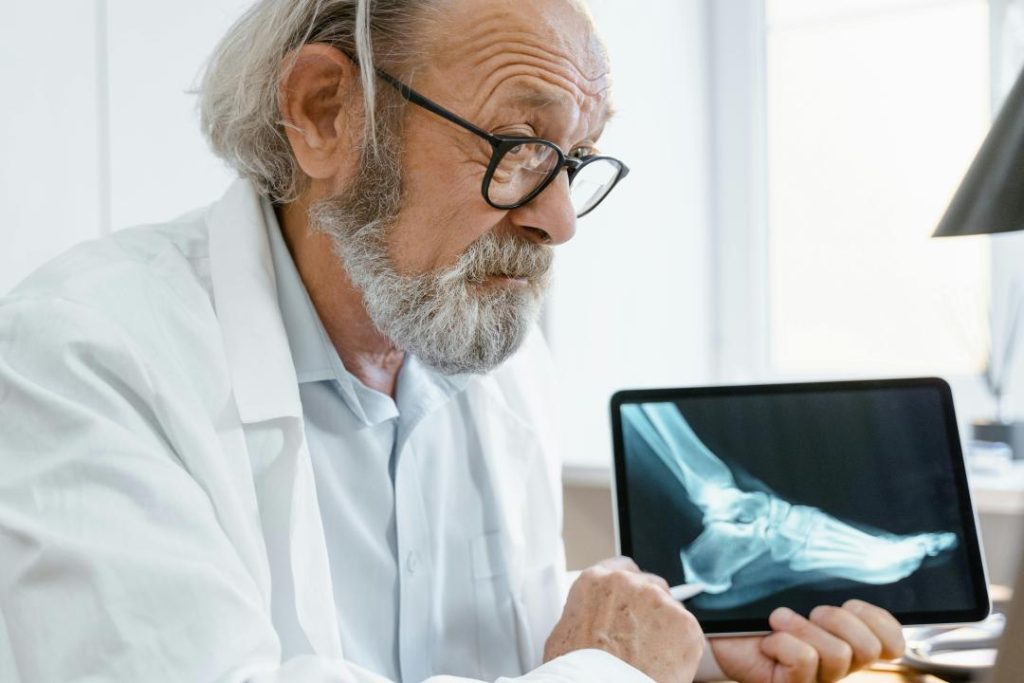
Weight Training Reduces Osteoporosis Risk in Women: Study
Osteoporosis is a silent threat to many women, particularly after menopause. As the bones lose density and become more porous, the risk of fractures and breaks increases, making everyday activities a challenge. However, a recent study published in the Journal of Orthopaedic Surgery and Research offers a glimmer of hope for postmenopausal women. The study found that resistance training significantly improves bone density in the spine, hip, and femur – key areas susceptible to fractures.
The Study
The study involved 96 postmenopausal women who were randomly assigned to either a resistance training group or a control group. The women who participated in the resistance training group performed high-intensity workouts three times a week for at least 48 weeks. The exercises focused on strengthening the muscles in the legs, hips, and lower back, which are essential for maintaining bone density and preventing fractures.
The researchers measured the participants’ bone density at the beginning and end of the study period. The results showed that the resistance training group experienced significant improvements in bone density in the spine, hip, and femur. In fact, the study found that every 1% increase in bone density reduced the risk of fractures by 20%.
Why Resistance Training is Effective
Resistance training is an effective way to improve bone density because it stimulates the muscles to contract and pull on the bones. This process, known as mechanical loading, helps to stimulate the production of bone-building cells called osteoblasts. As the bones respond to the mechanical stress, they become stronger and more dense.
Regular resistance training also helps to build muscle mass and increase bone size, which further enhances bone density. Additionally, resistance training can help to improve balance and reduce the risk of falls, which are a common cause of fractures in older adults.
Why Osteoporosis is a Concern
Osteoporosis is a condition in which the bones become weak and brittle, increasing the risk of fractures. According to the World Health Organization, osteoporosis affects an estimated 200 million people worldwide, with women being more likely to develop the condition than men.
After menopause, women experience a decline in estrogen levels, which can lead to bone loss and an increased risk of osteoporosis. In fact, osteoporosis is a leading cause of morbidity and mortality in postmenopausal women, with hip fractures being a major concern.
The Benefits of Resistance Training
The benefits of resistance training extend beyond improving bone density and reducing the risk of fractures. Regular resistance training can also:
- Improve muscle mass and strength
- Increase bone size and density
- Enhance balance and reduce the risk of falls
- Improve overall health and well-being
- Reduce the risk of chronic diseases, such as diabetes and heart disease
Getting Started with Resistance Training
If you’re interested in starting a resistance training program, there are several things to keep in mind:
- Consult with your healthcare provider before starting any new exercise program, especially if you have any underlying health conditions.
- Start slowly and gradually increase the intensity and duration of your workouts.
- Focus on exercises that target multiple muscle groups at once, such as squats and lunges.
- Incorporate exercises that challenge your balance and stability, such as single-leg squats and balance exercises.
- Make sure to warm up before your workouts and cool down afterwards to prevent injury.
Conclusion
The study’s findings are significant, as they suggest that resistance training can be an effective way to reduce the risk of osteoporosis in postmenopausal women. By incorporating resistance training into their exercise routine, women can improve their bone density, reduce their risk of fractures, and enhance their overall health and well-being.
If you’re a postmenopausal woman looking to reduce your risk of osteoporosis, consider talking to your healthcare provider about starting a resistance training program. With the right exercises and a consistent routine, you can take control of your bone health and reduce your risk of fractures.
Source:
https://thepfc.club/blogs/news/understanding-bone-health-after-menopause






